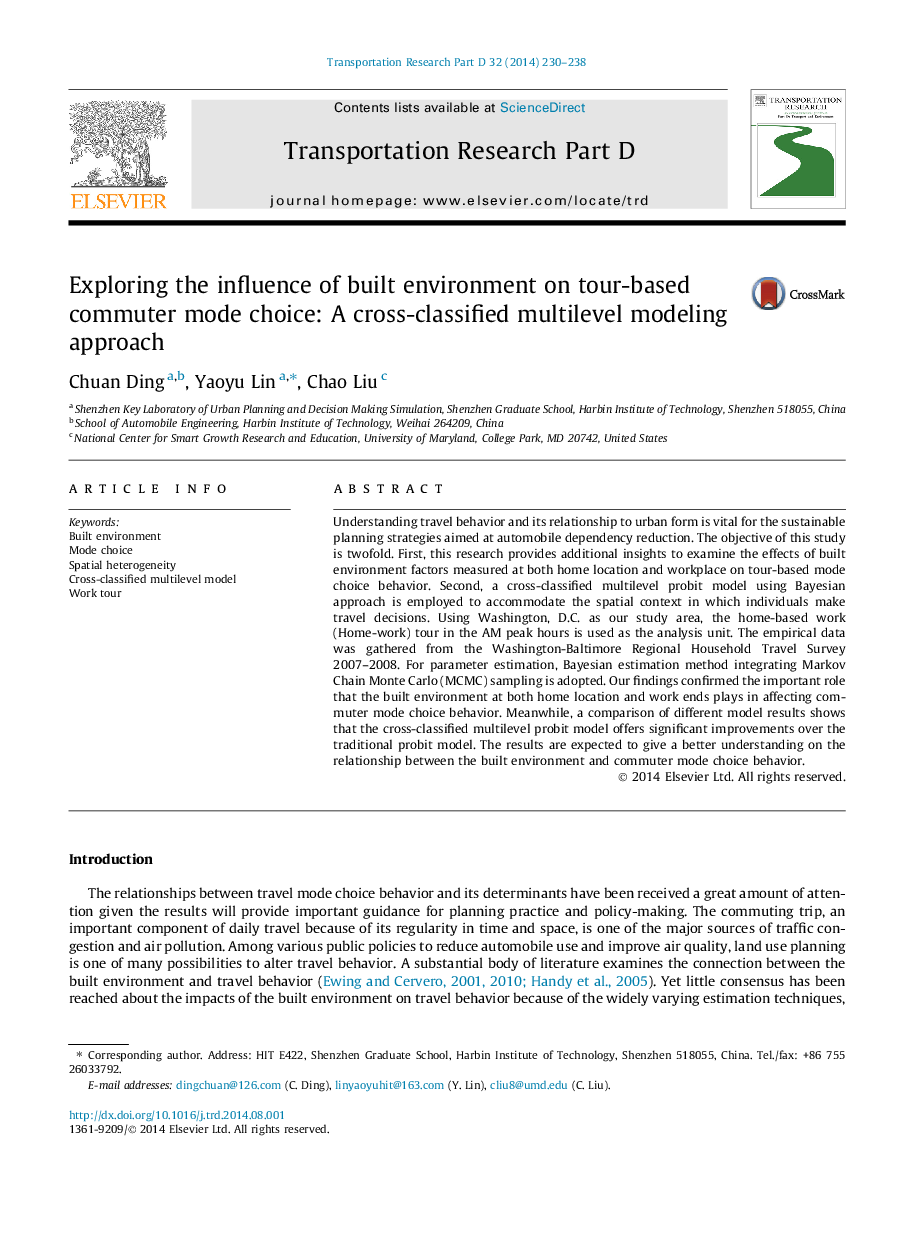| Article ID | Journal | Published Year | Pages | File Type |
|---|---|---|---|---|
| 7500928 | Transportation Research Part D: Transport and Environment | 2014 | 9 Pages |
Abstract
Understanding travel behavior and its relationship to urban form is vital for the sustainable planning strategies aimed at automobile dependency reduction. The objective of this study is twofold. First, this research provides additional insights to examine the effects of built environment factors measured at both home location and workplace on tour-based mode choice behavior. Second, a cross-classified multilevel probit model using Bayesian approach is employed to accommodate the spatial context in which individuals make travel decisions. Using Washington, D.C. as our study area, the home-based work (Home-work) tour in the AM peak hours is used as the analysis unit. The empirical data was gathered from the Washington-Baltimore Regional Household Travel Survey 2007-2008. For parameter estimation, Bayesian estimation method integrating Markov Chain Monte Carlo (MCMC) sampling is adopted. Our findings confirmed the important role that the built environment at both home location and work ends plays in affecting commuter mode choice behavior. Meanwhile, a comparison of different model results shows that the cross-classified multilevel probit model offers significant improvements over the traditional probit model. The results are expected to give a better understanding on the relationship between the built environment and commuter mode choice behavior.
Related Topics
Life Sciences
Environmental Science
Environmental Science (General)
Authors
Chuan Ding, Yaoyu Lin, Chao Liu,
